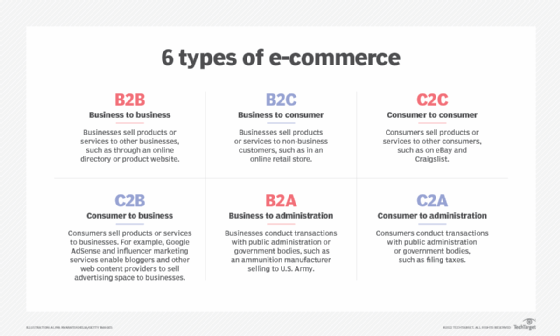Yes, an ecommerce website can sell products from other websites. This is often done through affiliate marketing or dropshipping.
Ecommerce websites have evolved beyond just selling their own products. Many now leverage affiliate marketing and dropshipping to broaden their offerings without holding inventory. Affiliate marketing involves promoting products from other websites and earning a commission on sales. Dropshipping lets sellers list products from suppliers, who then ship directly to customers.
These methods help ecommerce sites expand their catalog, reduce overhead, and meet diverse customer needs. By integrating products from other websites, ecommerce platforms can offer a wider range of goods and enhance user experience. This strategy also allows small businesses to compete with larger retailers by diversifying their product lines.
The Ecommerce Ecosystem
The ecommerce ecosystem is vast and dynamic. It involves various platforms, sellers, and buyers. Ecommerce websites can sell products from other websites. This practice is common and beneficial.
Growth Of Online Marketplaces
The growth of online marketplaces is rapid. Marketplaces like Amazon and eBay dominate. They offer a wide range of products. Many sellers use these platforms to reach customers. This growth is due to their convenience and variety.
These marketplaces have millions of visitors daily. They provide a significant opportunity for sellers. Sellers leverage these platforms to increase their sales. This trend is expected to continue.
Role Of Third-party Sellers
Third-party sellers play a crucial role in ecommerce. They offer products on large marketplaces. This boosts the marketplace’s product range. Third-party sellers also benefit from the marketplace’s traffic.
Many ecommerce websites act as third-party sellers. They list products from other websites. This approach helps them attract more customers. It also increases their revenue.
- Third-party sellers offer unique products.
- They help in expanding the marketplace’s offerings.
- They benefit from the marketplace’s established customer base.
Ecommerce websites selling products from other sites is a smart strategy. It helps them stay competitive. It also provides customers with more choices.

Dropshipping Model Explained
The dropshipping model is transforming the ecommerce landscape. It allows ecommerce websites to sell products without stocking inventory. This model can be highly profitable and easy to manage.
Basics Of Dropshipping
In dropshipping, the ecommerce website acts as a middleman. Here’s how it works:
- The customer places an order on your website.
- You forward the order to a third-party supplier.
- The supplier ships the product directly to the customer.
It eliminates the need for managing inventory. You only pay for the products once you sell them.
Pros And Cons For Ecommerce Sites
Understanding the pros and cons of dropshipping is essential. Here’s a detailed breakdown:
| Pros | Cons |
|---|---|
|
|
Low startup costs and no inventory are the main pros. Low profit margins and less control are the main cons.
Affiliate Marketing Strategies
Affiliate marketing is a great strategy for ecommerce websites. It helps them sell products from other websites. This method boosts sales and expands product offerings without extra inventory.
How Affiliate Marketing Works
Affiliate marketing involves three parties: the seller, the affiliate, and the customer. The seller provides products. The affiliate promotes these products. The customer buys the products through the affiliate’s link.
Here’s a breakdown of the process:
- The seller creates an affiliate program.
- The affiliate signs up for the program.
- The affiliate gets a unique link to the product.
- The affiliate shares the link on their website.
- The customer clicks the link and buys the product.
- The seller pays the affiliate a commission.
Benefits For Ecommerce Platforms
Affiliate marketing offers many benefits for ecommerce platforms. Here are some key advantages:
- Increased Product Range: Affiliates can offer products they don’t own.
- Low Risk: No need to invest in inventory.
- Cost-Effective: Pay only for actual sales.
- Boosted Traffic: Affiliates drive more visitors to the site.
- Enhanced Credibility: Trusted affiliates recommend your products.
The table below summarizes these benefits:
| Benefit | Description |
|---|---|
| Increased Product Range | Sell products without owning them. |
| Low Risk | No inventory investment needed. |
| Cost-Effective | Pay commissions for sales only. |
| Boosted Traffic | More visitors through affiliate links. |
| Enhanced Credibility | Trusted recommendations from affiliates. |
Cross-platform Selling
Cross-platform selling allows ecommerce websites to sell products from other sites. This helps businesses reach new customers and increase sales. Integrating products from various platforms can be complex but rewarding. Let’s explore how to make this work.
Integrating Multiple Sales Channels
To sell products from other websites, you need to integrate multiple sales channels. This involves connecting your ecommerce site with platforms like Amazon, eBay, and Etsy. You can use APIs to synchronize product listings, inventory, and orders.
Here is a simple table showing popular sales channels and their integration tools:
| Sales Channel | Integration Tool |
|---|---|
| Amazon | Amazon Marketplace Web Service (MWS) |
| eBay | eBay API |
| Etsy | Etsy API |
Challenges And Solutions
Cross-platform selling comes with challenges, such as:
- Managing different platform rules
- Synchronizing inventory
- Handling customer service
Here are solutions for these challenges:
- Use automation tools to keep your inventory updated.
- Train your team on platform-specific customer service.
- Adopt a unified order management system to streamline operations.
By addressing these challenges, you can successfully sell products across multiple platforms.
Legal Considerations
Selling products from other websites can be profitable. Yet, it involves legal considerations. You must understand these to avoid risks. This section covers crucial points to consider.
Intellectual Property Concerns
Intellectual property (IP) includes trademarks, copyrights, and patents. Using others’ IP without permission can cause legal issues. Always check if you have the right to use images, logos, or product descriptions.
Here are some common IP concerns:
- Trademarks: Using brand names without permission can lead to lawsuits.
- Copyrights: Copying images or text without consent is illegal.
- Patents: Selling patented products without permission can result in fines.
Reseller Agreements
A reseller agreement is a legal contract. It allows you to sell products from other websites. These agreements specify terms and conditions. They outline pricing, branding, and sales territories.
Key points in reseller agreements:
- Pricing: Ensure you understand minimum pricing rules.
- Branding: Check if you can use the brand’s logo.
- Territories: Know where you can sell the products.
Here is a sample table showing important elements of reseller agreements:
| Element | Description |
|---|---|
| Pricing | Minimum and maximum prices you can set. |
| Branding | Rules for using logos and brand names. |
| Territories | Regions where you are allowed to sell. |
Technology In Multi-source Selling
Technology in multi-source selling enables eCommerce websites to sell products from different sources. This approach can enhance product variety and customer satisfaction. It involves integrating various technologies to manage product listings, inventory, and orders efficiently.
Automating Product Listings
Automation is key for managing product listings from multiple sources. Automated tools can pull product details from different websites. These tools then list the products on your eCommerce platform.
Here are some benefits of automating product listings:
- Consistency in product information.
- Reduced manual effort.
- Faster product updates.
Automation helps maintain accuracy and saves time. It ensures your listings are always up-to-date.
Inventory And Order Management
Managing inventory from multiple sources can be complex. Technology helps simplify this process. Inventory management systems track stock levels from each source in real-time.
Features of an effective inventory management system include:
| Feature | Benefit |
|---|---|
| Real-time Tracking | Up-to-date stock information. |
| Low Stock Alerts | Prevents stockouts. |
| Automated Reordering | Maintains optimal stock levels. |
Order management systems handle orders from different sources. They ensure smooth processing and fulfillment. These systems integrate with inventory management tools for seamless operations.
Key benefits of order management systems include:
- Reduced order processing time.
- Improved accuracy in order fulfillment.
- Better customer satisfaction.
Using advanced technologies, eCommerce websites can efficiently manage multi-source selling. This strategy can enhance your product range and improve customer experience.
Success Stories
Success stories inspire many ecommerce businesses. They show that selling products from other websites can work. Let’s explore some of these stories.
Case Study: Ecommerce Success
One notable case is Amazon. Amazon started small but grew big. It sells products from many other websites.
| Year | Milestone |
|---|---|
| 1994 | Amazon launched |
| 2000 | Amazon Marketplace started |
| 2020 | Amazon reached $386 billion in sales |
These milestones show Amazon’s growth. It grew by selling products from other websites. This model proved very successful.
Learning From Successful Models
There are key lessons from these success stories. Here are some tips:
- Build trust: Customers trust big names like Amazon.
- Offer variety: Sell many types of products.
- Focus on user experience: Make your website easy to use.
- Leverage technology: Use the best tools and software.
These tips can guide your ecommerce journey. Follow these to achieve success like Amazon.

Building A Multi-vendor Ecommerce Site
Creating a multi-vendor ecommerce site is an exciting venture. This type of site allows multiple sellers to list their products. Think of platforms like Amazon or Etsy. You can be a hub for various sellers and products. It offers a wide range of products to customers. It also helps small businesses reach more people.
Key Features For Success
A successful multi-vendor ecommerce site needs certain features. These features ensure smooth operations and customer satisfaction.
- User-Friendly Interface: Both vendors and buyers should navigate easily.
- Vendor Dashboard: Vendors need a space to manage their products.
- Product Management: Easy product listing, editing, and categorizing.
- Secure Payment System: Trustworthy and varied payment options.
- Review System: Customers should leave reviews for vendors and products.
- Order Tracking: Buyers must track their orders in real-time.
Marketing Your Multi-vendor Platform
Marketing your multi-vendor platform is crucial. It attracts both vendors and customers. Here are key strategies:
- SEO Optimization: Use relevant keywords to rank higher in search results.
- Social Media Presence: Engage with potential vendors and buyers on social platforms.
- Email Marketing: Send newsletters to inform about new products and offers.
- Content Marketing: Create blogs and videos that showcase your platform.
- Referral Programs: Encourage existing users to bring in new vendors and buyers.
These strategies will help grow your multi-vendor ecommerce site. Consistent effort and quality service will attract more users.
Customer Experience And Trust
When an ecommerce website sells products from other sites, customer experience and trust are crucial. Customers expect a smooth and reliable shopping experience. Trust plays a significant role in their decision to purchase.
Maintaining Quality Control
Ensuring product quality is essential. Customers trust your site to deliver what they see. Here are some steps to maintain quality control:
- Regularly review partner sites to ensure they meet your standards.
- Only select products from reputable sources.
- Check customer reviews and ratings of the products.
- Create a feedback loop to address any quality issues quickly.
By maintaining strict quality control, you build trust with your customers. They will feel confident in their purchases.
Creating A Seamless Shopping Experience
A seamless shopping experience is vital for customer satisfaction. Here’s how you can achieve it:
- Integrate product listings from partner sites into your own site.
- Ensure the checkout process is smooth and intuitive.
- Provide clear and concise product descriptions.
- Offer multiple payment options for convenience.
Make sure the customer journey is straightforward. This encourages repeat business and builds trust.
Here is a table summarizing key points for a seamless experience:
| Step | Action |
|---|---|
| 1 | Integrate listings from partner sites |
| 2 | Ensure smooth checkout |
| 3 | Provide clear descriptions |
| 4 | Offer multiple payment options |
By focusing on these areas, you enhance the customer experience and build trust. This is crucial for the success of your ecommerce website.

Frequently Asked Questions
Can I Sell Other People’s Products On My Website?
Yes, you can sell other people’s products on your website. Use affiliate marketing or drop shipping models for this. Ensure you have proper agreements and legal permissions.
Can You Sell Products From Other Companies On Shopify?
Yes, you can sell products from other companies on Shopify. Use dropshipping apps like Oberlo or Spocket.
Can You Use Shopify On Other Websites?
Yes, you can use Shopify on other websites. Embed products with buy buttons or integrate with third-party platforms.
Can You Sell Products On Amazon And Your Own Website?
Yes, you can sell products on Amazon and your own website simultaneously. This dual approach can increase sales and brand exposure.
Conclusion
Selling products from other websites on your ecommerce platform is possible and beneficial. It can expand your product range. Ensure you follow legal guidelines and choose reliable partners. This strategy can boost your sales and customer satisfaction. Implement it thoughtfully for optimal success.



